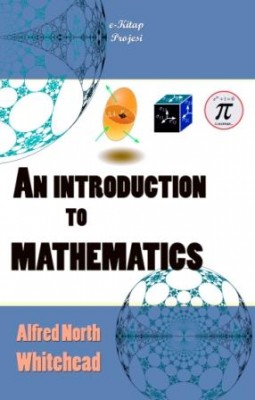Alfred North Whitehead, (1861 – 1947) was an English mathematician and philosopher. He is best known as the defining figure of the philosophical school known as process philosophy, which today has found application to a wide variety of disciplines, including ecology, theology, education, physics, biology, economics, and psychology, among other areas.
In his early career Whitehead wrote primarily on mathematics, logic, and physics. His most notable work in these fields is the three-volume Principia Mathematica (1910–13), which he co-wrote with former student Bertrand Russell. Principia Mathematica is considered one of the twentieth century's most important works in mathematical logic, and placed 23rd in a list of the top 100 English-language nonfiction books of the twentieth century by Modern Library.
Beginning in the late 1910s and early 1920s, Whitehead gradually turned his attention from mathematics to philosophy of science, and finally to metaphysics. He developed a comprehensive metaphysical system which radically departed from most of western philosophy.
Whitehead argued that reality consists of events rather than matter, and that these events cannot be defined apart from their relations to other events, thus rejecting the theory that reality is fundamentally constructed by bits of matter that exist independently of one another. Today Whitehead's philosophical works – particularly Process and Reality – are regarded as the foundational texts of process philosophy.
Whitehead's process philosophy argues that "there is urgency in coming to see the world as a web of interrelated processes of which we are integral parts, so that all of our choices and actions have consequences for the world around us." For this reason, one of the most promising applications of Whitehead's thought in recent years has been in the area of ecological civilization and environmental ethics pioneered by John B. Cobb, Jr.
A Treatise on Universal Algebra:
In A Treatise on Universal Algebra (1898) the term "universal algebra" had essentially the same meaning that it has today: the study of algebraic structures themselves, rather than examples ("models") of algebraic structures.
Whitehead credits William Rowan Hamilton and Augustus De Morgan as originators of the subject matter, and James Joseph Sylvester with coining the term itself.




























